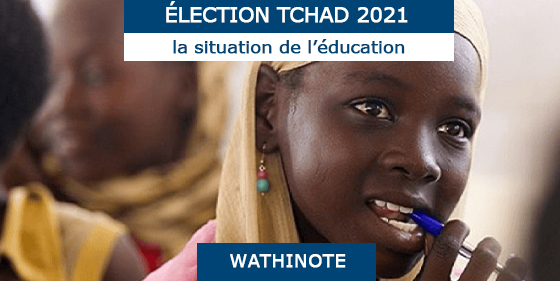

Author : Educate A Child (EAC)
Publication Type : Report
Date of publication : 2016
In Chad, where access to quality education remains a significant challenge, UNICEF, Educate A Child (EAC), and other partners are supporting the government with a project aimed at strengthening education for almost a million children.
There is a magic tree on one of the streets of Moundou, in southern Chad. It may not look magical or even special through everyone’s eyes, but to 15-yearold Ahmad Mohammed, this strong, leafy tree is his favourite spot in the world. It receives the last light of the day, which allows him to finish his homework. “Every day I revise my lessons under the tree over there, because of the light,” says Ahmad as he points at the tree near his house. “We do not have light at home.” Ahmad is a bright boy, with big eyes and a shy smile.
He lives with his parents and six younger brothers and sisters in a humble home in one of the neighbourhoods of Moundou. They all sleep in the same bedroom, and only a few thin mats separate them from the sandy ground. Ahmad helps out his family whenever he can. From time to time he sells vegetables and boiled eggs at the market, which brings in some extra income. Nevertheless, he has a clear objective in life: to finish his education.
“I am really motivated to go to school, because I like learning, and I would like to do well so I can help my parents,” he says. Ahmad wakes up every day at 6am and helps his brothers and sisters get ready for school. They all attend Quinze Ans school in Moundou, where UNICEF, with the support of EAC, has built 12 classrooms equipped with new desks. Making quality education a reality for children in Chad Educate A Child Basic education in Chad faces enormous challenges.
Despite recent improvements, the primary school enrolment rate remains low, quality education is lacking, and girls are especially disadvantaged. Existing schools are overcrowded and understaffed, with only 30% of teachers properly qualified. With the support of EAC and other partners, UNICEF is building almost 1,600 classrooms across the country, using eco-friendly insulation materials that help keep indoor temperatures down – important in Chad, where temperatures can reach 50°C (122°F).
The project is also constructing hundreds of boreholes and latrines. In addition to training teachers, UNICEF is providing teaching and learning materials, with millions of reading books and teachers’ guides distributed across the country.
Les Wathinotes sont des extraits de publications choisies par WATHI et conformes aux documents originaux. Les rapports utilisés pour l’élaboration des Wathinotes sont sélectionnés par WATHI compte tenu de leur pertinence par rapport au contexte du pays. Toutes les Wathinotes renvoient aux publications originales et intégrales qui ne sont pas hébergées par le site de WATHI, et sont destinées à promouvoir la lecture de ces documents, fruit du travail de recherche d’universitaires et d’experts.
